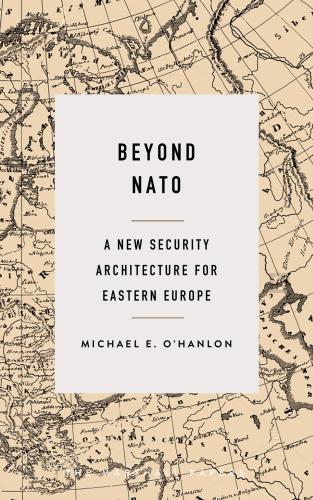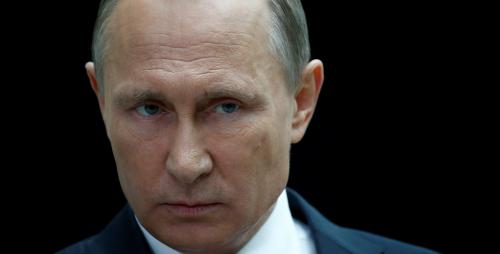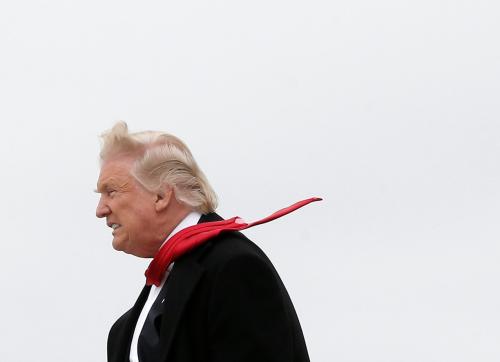The first meeting between President Trump and President Putin may well result in a breakthrough in U.S.-Russian relations. Putin needs to escape international isolation and get sanctions lifted. While sanctions have not strongly hurt the Russian economy (in the first half of this year, Russian banks and companies have raised almost $28 billion in Western markets—three times what they repaid for matured debts), they surely serve as humiliation for Putin.
If Trump takes a direct approach to Putin, the two can discuss common interests they share around the globe. While Ukraine may be a sticking point, there could be room for progress there, too.
A direct approach to Putin
Trump needs to prove his qualifications as a dealmaker, about which he boasted so much. Moreover, as many experts have recognized, any dialogue with Russia is impossible without a direct approach to Putin’s ear; neither Putin’s Minister of Foreign Affairs Sergey Lavrov, Minister of Defense Sergey Shoigu, nor personal assistant on international affairs Yuri Ushakov are reliable channels. That is why the policy of President Obama, who gave the Russia account to Secretary of State Kerry, was doomed to fail from the outset. Putin is not ready to negotiate with anyone except his Washington counterpart.
This does not mean that President Trump has to sit for hours on the telephone with the Kremlin. Regular, short phone calls for attending to controversies or discussing potential forks in the road could well become the format for relations at the top level.
Sharing common goals
Despite hostile rhetoric and mutual criticism, there are many areas where Russian and U.S. interests converge.
For example, the de-escalation of military and political tension: Neither side is interested in seeing things reach a boiling point, when the threat of a military confrontation would be inevitable. Disarmament talks were never simple, but that does not mean they should stop.
Or take Syria. After Secretary of State Tillerson de facto withdrew Washington’s demand for the resignation of President Assad, Russia has taken the lead in the search for a political settlement to the conflict (though the United States maintains a veto). But fighting ISIS remains a common goal and can be shared on a geographic basis, with the United States fighting in Iraq and Russia in Syria.
The same applies to North Korea’s nuclear program: It is in the interest of both sides to stop its development. Both leaders are well aware that the key player in this situation is China; therefore, they need to combine their efforts to encourage China to exert greater pressure on its small but proud neighbor.
The presidents’ meeting may also give way to serious talks on the prevention of cyberwar. The recent spread of computer viruses have shown that global information systems are much less resistant to external attacks than many think, and the consequences of such attacks can be very painful. Somehow (you cannot have your cake and eat it too), diplomats need to find a suitable exit for the Russian president regarding the involvement of Russian hackers in the U.S. electoral process. On the one hand, Putin cannot acknowledge it or accept any responsibility. On the other hand, he should say something that would deter the House of Representatives from adopting the Senate-approved law on new sanctions against Russia.
A breakthrough on Ukraine?
The most difficult issue for the two presidents, of course, will be the military conflict in eastern Ukraine, where Moscow’s and Washington’s positions sharply diverge. But that’s in fact why we may expect a breakthrough.
So far, the United States has remained an observer in the peace talks, deferring to European countries. Of course, the United States was in favor of the Normandy format and insisted on the full implementation of the Minsk agreement, but the Obama administration refrained from participating directly in the negotiations. Moreover, the White House did not support former Assistant Secretary of State Victoria Nuland’s efforts to establish some dialogue with the Kremlin.
For Putin, however, the conflict in the Donbas is not a war with Ukraine but one with the United States, which approached the borders of his motherland. Therefore, for the Russian president, negotiations with Europe make no sense, because Europe is not a participant of this game. He is looking for direct talks with the United States on Ukraine.
For some reason, the Obama administration strongly evaded Putin’s demand, but now the White House position may be changing. In his recent op-ed in the Washington Post, former U.S. ambassador to Moscow Michael McFaul counseled President Trump before his meeting with Putin to appoint a special presidential envoy on the situation in Ukraine. This relatively simple and cheap solution could indicate desire on behalf of the two presidents to build a constructive dialogue despite tensions—but in fact, this decision would not lead immediately to any real changes in eastern Ukraine.
Of course, a dialogue between two alpha males will not be easy. The desire to dominate will be enormous, with each challenging the other to show sufficient respect. However, I retain my optimism. Perception is reality, and both presidents need to demonstrate success after this meeting. Therefore, both may recognize that there is no value (at least at the moment) in causing further aggravation in the relationship.
The Brookings Institution is committed to quality, independence, and impact.
We are supported by a diverse array of funders. In line with our values and policies, each Brookings publication represents the sole views of its author(s).







Commentary
Trump-Putin: A chance for a win-win?
July 6, 2017